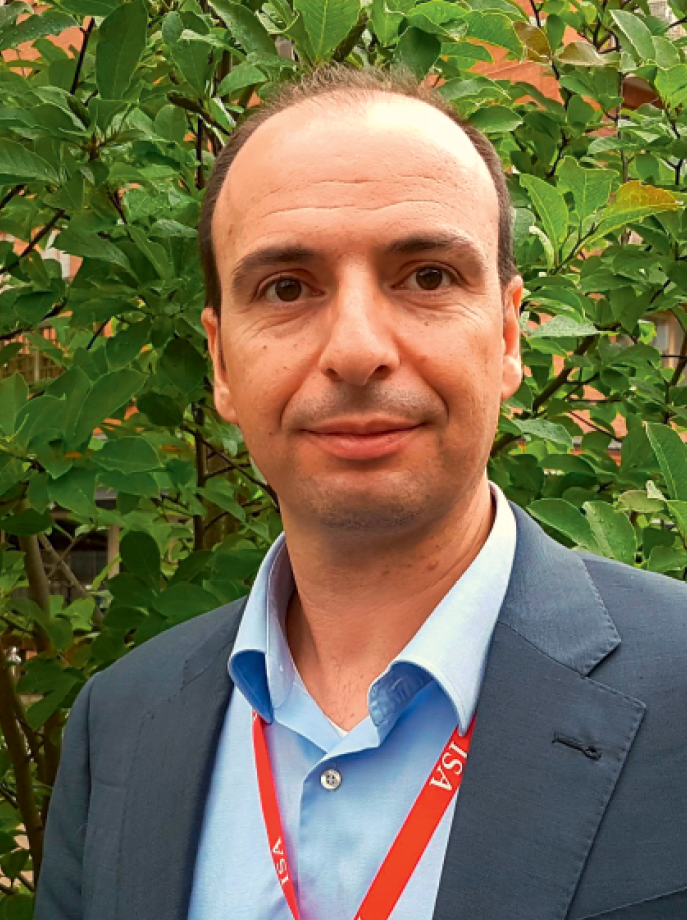Preface – iwWM 2022

© author’s own – Efstathios Kastritis, MD, Plasma Cell Dyscrasia Unit, Department of Clinical Therapeutics, National and Kapodistrian University of Athens, Athens, Greece
Dear Colleagues,
The 11th International Workshop on Waldenström’s Macroglobulinemia (iwWM), held in Madrid, Spain, and virtually from 27th–30th October 2022, featured 20 sessions with more than 100 presentations.
Until now, primary treatment options for WM included combination strategies with anti-CD20 monoclonal antibodies, chemotherapy, proteasome inhibitors and covalent BTK inhibitors. However, intolerance and acquired resistance – either due to the acquired BTK-C481 mutation or other so far unknown mechanism – are challenging. Following the Workshop’s mission to further improve the understanding, diagnosis, treatment, and prevention of disorders affecting the blood, bone marrow, and the immunologic system, by promoting targeted research, clinical care methods, education, training, and advocacy for Waldenström’s macroglobulinemia, this memo inHaematology issue looks closely at new covalent, as well as non-covalent BTK inhibitors, BCL2- and CXCR4-antagonists.
Moreover, important genomic approaches, identifying new robust biomarkers and genomically driven algorithms for the treatment of WM are outlined. For instance, the ASPEN biomarker trial demonstrated deeper responses in patients with CXCR4MUT or TP53MUT among patients treated with zanubrutinib compared to ibrutinib.
A range of relevant and potentially practice-changing findings in treatment-naïve, pretreated as well as ibrutinib and/or acalabrutinib intolerant WM patients are described. Data on new covalent BTKi inhibitors tirabrutinib and orelabrutinib are shown. In the relapse/refractory setting, a novel non-covalent, orally administered, potent, irreversible, and highly selective BTKi demonstrated promising efficacy and a manageable safety profile with the potential to become a major therapy option for this patient population.
Long-term follow-up data on ibrutinib or zanubrutinib in treatment-naïve WM patients and on zanubrutinib also in relapsed/refractory WM patients, as well as the treatment efficacy of BTKi versus chemoimmunotherapy, are discussed. Finally, data on the use of venetoclax (anti-BCL2) either alone in pretreated WM patients or in combination with ibrutinib in treatment naive WM are discussed, highlighting their challenges in WM therapy.
Once again, this year’s iwWM workshop highlighted the importance of multidisciplinarity and collaborations, while presenting a range of relevant and potentially practice-changing findings for accelerating the approval of most effective treatments and ultimately finding a cure for Waldenström’s macroglobulinemia.
More posts
Emergent BTKi treatments in WM
Emergent BTKi treatments in WM Additionally to ibrutinib, to date the only once-daily B
BTK inhibition in Waldenström’s macroglobulinemia: trial updates and biomarker analysis
BTK inhibition in Waldenström’s macroglobulinemia: trial updates and biomarker analysis
Management of WM patients previously exposed to BTK-inhibitors
Management of WM patients previously exposed to BTK-inhibitors Zanubrutinib in ibrutin
New insights into BTKi treatment of Waldenström‘s macroglobulinemia
New insights into BTKi treatment of Waldenström‘s macroglobulinemia New insights into
Preface – iwWM 2022
Preface – iwWM 2022 © author’s own - Efstathios Kastritis, MD, Plasma Cell Dyscrasia




